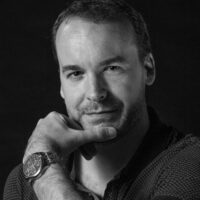Why there’s no change without doubt, and three questions to take control back into your hands
In Listening to Your Life by Frederick Buechner, there’s a story that stuck with me. The narrator talks about religion with one of his students, and the young man asks him if he has received any proof of the existence of God.
This is his answer:
“Without somehow destroying me in the process, how could God reveal himself in a way that would leave no room for doubt? If there were no room for doubt, there would be no room for me.”
Even when taken out of context, that last sentence is powerful. “If there were no room for doubt, there would be no room for me” — this feels true for all of us, whatever our faith or personal philosophy.
Why is doubt so important?
There’s No Change Without Doubt
Certainty feels good.
It is intoxicating to know you’re 100% right about something. It gives you an ego trip, letting you look down on people who are clearly in the wrong (and let’s face it, some of them make that very easy).
At the same time, feeling sure of yourself lets you remain intellectually and emotionally comfortable.
Any time your certainty is challenged, you get pushed out of your comfort zone.
This is why it’s so easy to get stuck in an echo chamber — you prefer to remain comfortably sure of your beliefs, and you don’t want to experience doubt.
Take religious fundamentalists. They have blinkers; they can’t see outside of their faith. If you challenge them on something they believe in, no matter how inconsequential, they react like you’re attacking them personally.
In a way, that’s true. By introducing doubt into their life, you’re challenging their sense of comfort.
This goes beyond religious zeal — it explains just about any heated political conversation, online or offline. It’s all too easy to get stuck in a particular worldview, ignoring or attacking anyone who disagrees.
But accepting doubt lets you change.
I know it’s not easy to admit you’re unsure about something. It takes courage to face up to the fact that you used to be wrong or didn’t have the full picture.
However, you cannot grow as a person until you’re willing to change and adapt your beliefs. Without doubt giving you that extra push, you do not want or need to learn. If there is no room for the “self,” there is no self-discovery journey either.
Absolute certainty makes you passive, and that’s where the outside control comes in.
Doubt Keeps You Safe from Manipulation
What happens if you let yourself get stuck in a particular outlook with no room for questions or new information?
You’ll get used to prop up someone’s agenda.
Not every influence in your life is a form of manipulation. After all, you are a construct of your environment (the people you interact with daily), your parents, close friends, the books you read, the media you consume.
But every day, the media and big corporations try to steer you in a specific direction. Through a failed education system and a rigid administration, your government likely exerts pressure on you too.
These systems will make sure you remain a cog in a well-oiled machine.
In the past, religion facilitated the control of the masses, and that’s still true in some parts of the world. But in many places, the media has replaced religion.
When we look at the news and mass entertainment, they confirm the views we already hold. If there’s any seed of doubt in our minds, the response we get is immediate and absolute — you shouldn’t question the way the world works, you should kick back and buy more stuff.
I keep thinking about these disturbing (and inspiring) words from philosopher Yuval Noah Harari:
“So, you have no choice but to really get to know yourself better. Know who you are and what you really want for life. This is, of course, the oldest advice in the book: know thyself.
But this advice has never been more urgent than in the 21st century. Because now you have competition. Google, Facebook, Amazon, and the government are all relying on big data and machine learning to get to know you better and better.
We are not living in the era of hacking computers we are living in the era of hacking humans. Once the corporations and governments know you better than you know yourself, they could control and manipulate you and you won’t even realize it.
So, if you want to stay in the game, you have to run faster than Google. Good luck!”
Your Shield Against Lies and Comfortable Half-Truths
As I said, it’s not comfortable to allow doubt into your life.
But there’s one thing you can rely on.
Curiosity comes naturally to us all, and it can save us from manipulation.
Research says that being curious makes you happier, more compassionate, and it even corresponds to better general health. Plus, it strengthens your relationships with the people around you.
So lean into that impulse. When you experience a sliver of doubt, hold on to it.
You don’t have to become a ruthless cynic. But at least stay open to the possibility that other people have something worthwhile to say.
“A wise man seeks wisdom, a madman thinks he has found it.” — Persian proverb
I mentioned before that quotes are essential to me. The wise words of my favorite thinkers give me a new perspective on the choices I’m making — and I always seek out new sources of wisdom.
Reading helps quench my thirst for knowledge. This wide range of voices has shaped me into who I am.
Now, I cannot proclaim I know the truth. I’m experiencing life, learning a bit more every day. It’s important to me to keep growing, doubting. The fact that I’m making many mistakes along the way is just a part of the journey.
Take Control Back Into Your Hands
Look at your life with a critical eye. Let doubt override certainty and do some difficult self-examination.
If you’re not sure where to start, I recommend the following three questions. These have helped me reach a higher degree of clarity.
1. Are you doing what you want or what you’re told to do?
A long time ago, I decided I was not going to join the 9-to-5 grind or try to climb the corporate ladder of BS. This changed my life for the better, and despite the challenges, I’d do it all over again.
2. Where do you get your information?
I don’t watch the news anymore. If I need to know something meaningful that will have a real impact on my life, I will learn about it one way or another. I’ll dig in a little deeper, so I don’t have to rely on TV anchor puppet heads to tell me what’s going on.
I turned off most of my social media to silence the noise. It’s my way of avoiding the constant stream of tailor-made ads that aim to keep me consuming and obeying an established norm.
3. What do you do every day to challenge your worldview?
Instead of wasting my time on the 24/7 media circus with its mass control agenda, I read old books that have stood the test of time.
Perhaps you prefer to talk to a wide selection of people, or you like to go out and try to change things.
What matters is that you’re moving and growing. Just don’t become a cog with no room for doubt.
 Eric Sangerma is an entrepreneur, founder of TrulyScaled.com and Wholistique.com and co-host of The Wholistique Show which explores how to reach peak personal and professional performance while living a minimal and balanced life. Follow him on LinkedIn and Twitter.
Eric Sangerma is an entrepreneur, founder of TrulyScaled.com and Wholistique.com and co-host of The Wholistique Show which explores how to reach peak personal and professional performance while living a minimal and balanced life. Follow him on LinkedIn and Twitter.
Image courtesy of Caleb Frith.












